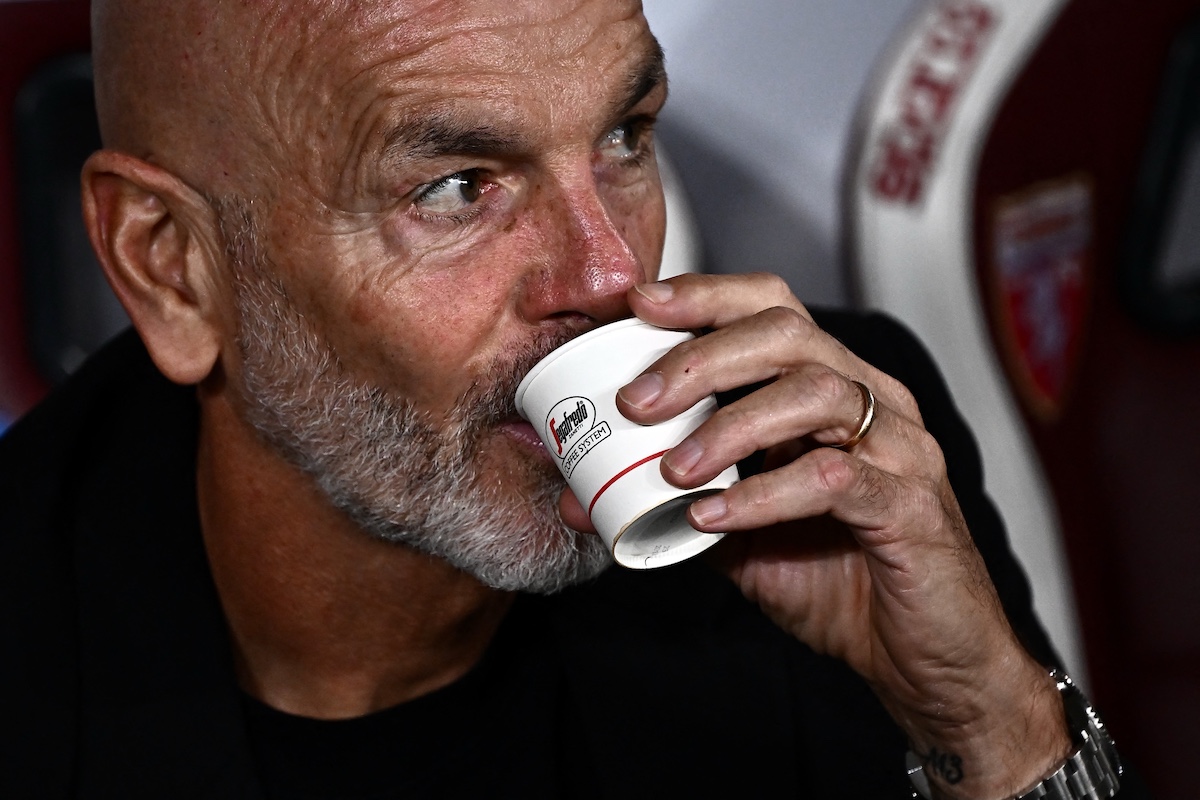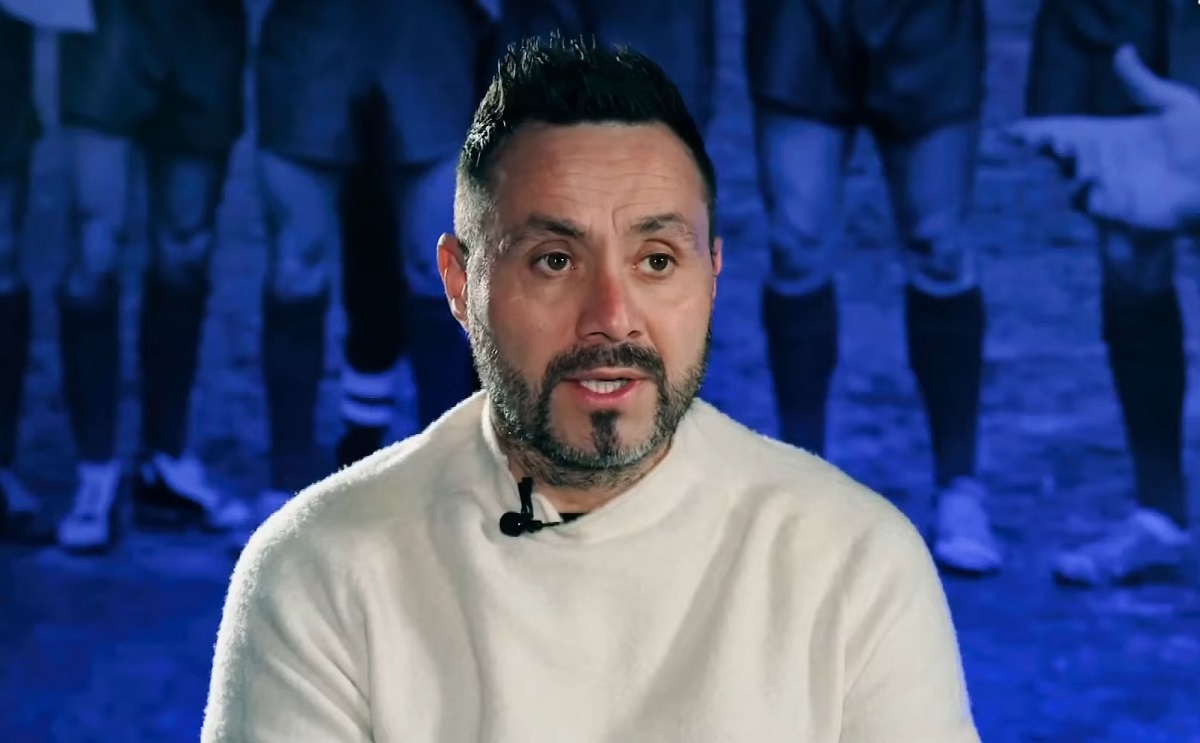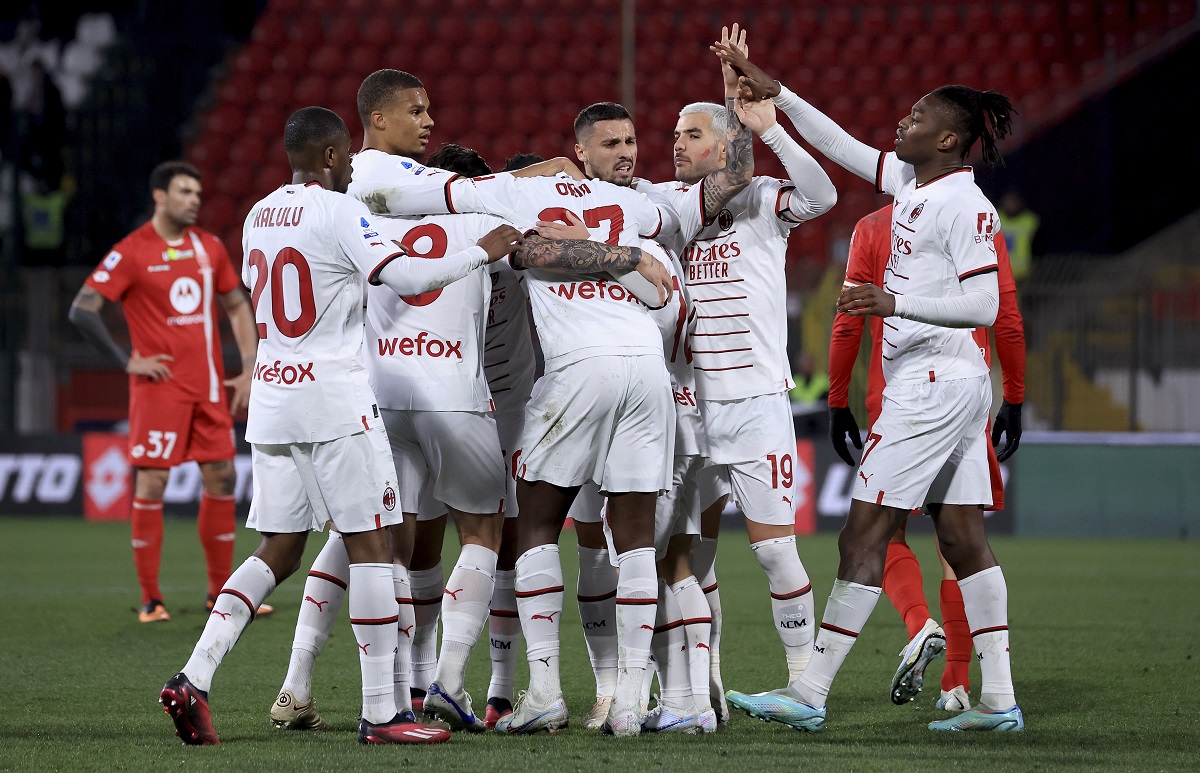Giorgio Furlani was recently interviewed by the magazine Fortune Italia and shared his thoughts on the growth of AC Milan. Among other things, he also made it clear that football is an industry and not just a game.
Since Elliott Management took over Milan, and then RedBird Capital, there have been various hurdles to overcome such as the stadium bureaucracy and the removal of the Growth Decree. Nevertheless, Milan returned to profit for the 2022-23 financial year and is on a promising path.
Speaking to Fortune Italian, as transcribed by Calciomercato.com, Giorgio Furlani shared his thoughts on Milan’s growth as a whole and the systematic issues in Italy. He stated that the country must treat football as an industry that adds a lot to the economy, and not just a game.
You are AC Milan’s CEO and you are also a supporter…
“I’m lucky to find myself in this position. I go into it with a great sense of responsibility, especially since I saw what happened when the club was managed in an imprudent way. I joined Milan about six years ago when the club needed to be saved from bankruptcy…”
On the corporate side of the project…
“The Milan project has focused on the talent of young people at all levels, mixing it with the necessary experience. We have rejuvenated the managerial structure by also adding profiles from other sectors. It’s the right thing to do to bring new ideas. Since July last year, the club has created around 30 new professional opportunities, with an average age of 28 among these new employees.”
And on the pitch?
“We have built a competitive team, with the inclusion of quality young players, physically strong and suited to modern football. Among the top teams in the league, we are the team with the lowest average age if we count the players fielded in Serie A. Furthermore, the Rossoneri locker room is a very united one, a group made up of great men and great players.”
On Italian football as a whole…
“You have to work hard and do it as a team. Football is an extraordinary tool for attracting capital and contributing to the country’s GDP. We have systemic problems, including subpar sports facilities, to say the least. We have serious problems with piracy.
“We have problems with a series of rules and laws that do not help us compete at the European level. To be clear: if we want to leverage this sector in the interest of Italy’s economy, we have to work synergistically with the country’s institutions.
On the possibility of foreign entrepreneurs entering football…
“Certainly, but we must abandon the idea that football is just a game and nothing more. Football is an industry. We’re talking about companies with hundreds of millions in revenue and the potential to bring hundreds of millions in investments to our country.”
On Milan…
“After difficult years, the recovery and relaunch of this club, which represents the history of Italian football worldwide, were made possible by our previous ownership, which prevented the disaster of bankruptcy. Today, we are experiencing a phase of acceleration and growth.
“We are in a new important chapter in the Club’s evolution, supported by Gerry Cardinale’s strategic vision, RedBird’s skills and experience in the business sports, media and entertainment, developing global brands and creating virtuous synergies. We have started a fundamental growth path to close the gap with the big teams in Europe, especially those in the Premier League, which today have higher revenues.
“Sporting success has to be at the core of the AC Milan project. The revenue that is generated is re-invested in the Club: investment in players, but also in facilities, infrastructures, commercial capabilities and people. It’s a virtuous circle: revenues fuel investments, which produce better performances, which in turn create new revenues.”
On infrastructure…
“Ownerships, especially foreign ones, are willing to invest in new stadiums. There has been, however, a de facto impossibility due to bureaucratic and administrative complexity. There is a will and there is capital, but it’s hard to invest.”
On San Siro turning 100 years old…
“Well, maybe we need a new one? We have been working for more than five years to give Milan a new stadium and we have shown that it is a priority for us. It is fundamental for the future of the club, to continuously return to the elite of international football.
“Milan needs to have the most beautiful, modern and functional stadium in the world. We want to be a global icon, a point of reference for innovation and sustainability, which offers unprecedented accessibility and experience, maximum safety, comfort and services.
“What is certain is that RedBird wants to offer fans an experience and a home that lives up to the status of this great club and is suited to the modern era. And RedBird has experience in doing just that.”
Will you be able to build a new stadium in Milan, Italy too?
“We have a new major stadium project in San Donato in the pipeline. We will make every effort to achieve the result, despite the various system obstacles. We are, as I told you, in a new phase of growth for Milan, under the guidance of RedBird, and the stadium represents a fundamental pillar on which the entire management is focused, starting from President Paolo Scaroni.”
On the disappearance of Growth Decree…
“We have talked a lot about the growth decree. This law has been repealed for football, but we have kept all our competitive disadvantages: crumbling structures, contractual terms, harsh limitations on signing non-EU players. Not to mention that the football industry generates billions for the state treasury in terms of betting, but doesn’t keep a single euro of it because the Dignity decree prohibits it.”
On politics…
“With all due respect for the institutions of this country, I would like to point out that we need to overcome prejudice. The question is: is football an industry? Yes, it is in terms of revenue, investments, number of workers, taxes paid, social consensus, and more. If other sectors receive aid, incentives, contributions, it’s hard to understand why football should be excluded.
“We need to create a virtuous circle: the healthier the football industry is, the more it produces income, profits, jobs, and contributes to public spending. If we had let Milan go into insolvency, today we would be here talking about a national disaster from every point of view. Instead, Milan is healthy, growing, and wants to help Italian football resurgence.”
The stadium project has taken some steps forward in recent weeks as the San Donati council’s technical committee approved the project. Milan have also officially bought a piece of land in the San Francesco area, investing less than the initially reported €40m but still a significant amount.





Always nice to hear billionaires ask for public money to run their fruitful business in a country where the costs of living are through the roof and in a city where housing is now almost impossible.
How did you get any of that from this interview? For context it’s clear that the mafia I mean “government” is happy to let all the old Dons continue to make billions off football through betting while actively obstructing clubs from investing and generating the revenue that calcio desperately needs to survive. But you are suggesting the growth decree was funded by Italian taxpayers? I don’t know how you’ve come to that conclusion but you’re woefully mistaken on how a tax credit works…